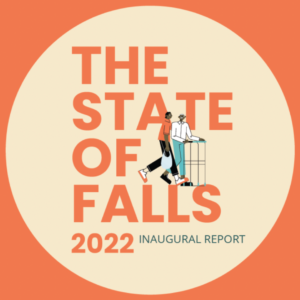Proposed Minimum Staffing Requirements Poised to Impact Nursing Homes
On September 1, 2023, the U.S. Department of Health and Human Services (HHS), through the Centers for Medicare & Medicaid Services (CMS) proposed a rule that would establish staffing requirements for nursing homes. The rule includes national minimum nurse staffing standards for long-term care facilities.
The Biden-Harris Administration released a fact sheet about the rule, which references President Biden’s Executive Order on Increasing Access to High-Quality Care and Supporting Caregivers, signed in April 2023. The fact sheet states, “Today, the Biden-Harris Administration is following through on the President’s commitment to nursing home residents and their families. HHS is announcing important new steps to crack down on nursing homes that endanger resident safety.”
How the Proposed Rule Would Impact Nursing Homes

Richard J. Mollot, executive director of the Long Term Care Community Coalition
The proposed rule would have several impacts on nursing homes. Nursing homes that participate in Medicare and Medicaid would be required to meet minimum nurse staffing levels. The rule would require nursing homes to have a Registered Nurse on site 24/7. According to the fact sheet, 22% of nursing homes would have to hire a Registered Nurse to meet this requirement.
In addition to a full-time Registered Nurse, the proposal requires nursing homes to provide at least .55 hours, or 33 minutes, per resident day of care from a Registered Nurse. For example, a facility with 100 residents would have to provide 55 Registered Nurse hours per day to meet this requirement. The fact sheet indicates that 36% of nursing homes would have to hire Registered Nurses to meet this requirement.
The rule would also require nursing homes to provide 2.45 hours, or 2 hours and 27 minutes, per resident day of care from nurse aides. A nursing home with 100 residents would need approximately 10 nurse aides per eight-hour shift. The fact sheet states that 68% of nursing homes would have to hire nurse aides to meet the requirements.
HHS also announced several changes to better enforce existing standards:
- Expansion of audits of direct care staffing data that nursing home’s report, in an effort to ensure that federal and state inspectors, plus residents and their families have accurate information about facilities
- New oversight work to monitor how nursing homes spend taxpayer funds
- New analyses of state inspection findings to ensure that deficiencies, including those that involve resident harm, will receive appropriate citations
- Increased examination of risks at nursing homes that have concerning antipsychotic prescribing practices
- New efforts to improve resident safety during emergencies, including the launch of a national study of nursing home preparedness and key challenges.
Reactions to the Proposed Changes
While the proposed rule is positioned as working to improve resident care and safety, long-term care industry experts are speaking out about the proposed changes.
Mark Parkinson, president and CEO of the American Health Care Association (AHCA), writes, “It is unfathomable that the Biden Administration is proceeding with this federal staffing mandate proposal. Especially when just days ago, we learned that CMS’ own study found that there is no single staffing level that would guarantee quality care.”
On August 29, 2023, KFF Health News reported that a research study commissioned by CMS to identify the appropriate level of staffing level for quality care didn’t make any specific recommendations. “Instead, the new study said there was no single staffing level that would guarantee qualify care,” KFF Health News reported. According to KFF Health News, the study, which is dated June 2023, was not formally released, but a copy that was posted on the CMS website was taken down shortly after KFF Health News published the article.
Parkinson notes that nursing homes “are facing the worst labor shortage in our sector’s history, and seniors’ access to care is under threat. This unfunded mandate, which will cost billions of dollars each year, will worsen this growing crisis,” he says. “It requires nursing homes to hire tens of thousands of nurses that are simply not there. It then penalizes us and threatens to displace hundreds of thousands of residents when we can’t achieve the impossible. Already, hundreds of nursing homes across the U.S. have closed because of a lack of workers.”
The AHCA hosted a webinar for AHCA/NCAL members on September 11 titled “Contacting CMS on Minimum Staffing Requirements.” A recording of the session is available.
Richard J. Mollot, executive director of the Long Term Care Community Coalition (LTCCC), has similar concerns about the proposed rule. “Frankly, the proposed standards are very disappointing,” he says. “President Biden promised to ensure that every nursing home resident has access to the staffing they need to receive appropriate services and be treated with dignity. The proposed standard falls far short of that.”
Mollot says the standards will impact some nursing homes, but not all. “Nursing homes that are really at the bottom of the barrel will need to improve their staffing levels,” he explains. “However, the 85% of nursing homes that exceed the three hours per day of nurse staffing time will not need to do much. The proposal also calls for 24/7 RN staffing, which will be an adjustment for some nursing homes.”
He also notes that the industry is missing out on an important opportunity. “Nursing home industry lobbyists have been working to attack this standard for over a year and have clearly been successful in making the proposal very weak,” says Mollot. “While this may be beneficial to the industry in the short run, it is hard to understand why they’d want to perpetuate a business model that most consumers would do anything to avoid using. Given that there are increasing opportunities for seniors to get care services at home, why not, instead, work to make nursing homes as welcoming and attractive an option as possible?”

Paige Cerulli is a contributing writer to i Advance Senior Care.
Related Articles
Topics: Featured Articles , Regulatory Compliance , Staffing











